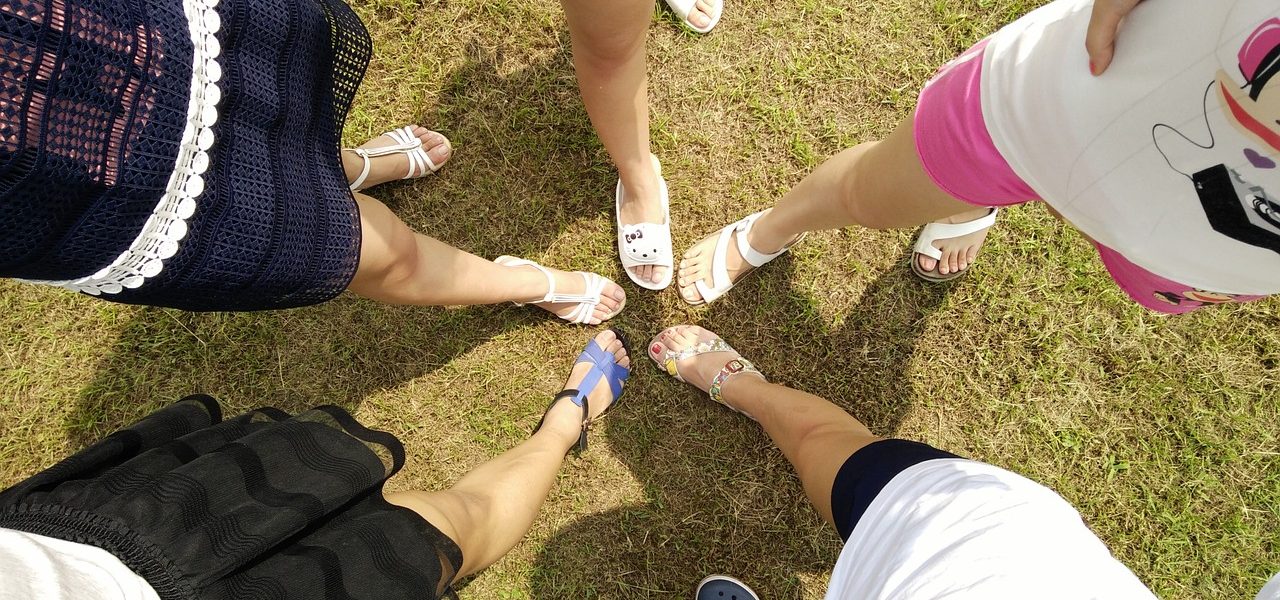We all do it. Compare ourselves with other, that is. It’s human nature. Children learn by mimicking others—a skill based on the ability to compare oneself with another. When I was a little girl, I mimicked the older girls’ ways of talking and walking, of wearing their hair, and their likes and dislikes. When I mimicked correctly, I fit in socially. When I failed to be like the others, I didn’t fit in. Comparison is a social skill. Plus, it’s just part of how we learn to perceive the world around us: this box is smaller than that box; that animal more dangerous than this one; this car faster than the other.
We gauge where we fit into the larger world by comparing ourselves with others. Studies* show that when we think we’re doing better than others, we tend to feel happier; when we think we’re doing worse than others, we tend to feel depressed. So judging ourselves negatively in comparison to others can affect us in negative ways. For example, young girls learn to hate their own bodies because they can’t hope to live up to what they see idealized in the media. Young boys compare themselves negatively to superheroes. They both end up feeling bad about themselves, insecure about their appearance and/or abilities. The only way they can make themselves feel better is to compare themselves with someone worse or to put others down in some way. In this case negative comparison leads to insecurity, which can then lead to meanness and even bullying.
That’s the negative side of comparing ourselves to others. However, it can also have positive effects. Comparing ourselves to people who are doing better can open up possibilities and/or motivate us to achieve more than we might otherwise achieve.
When I was in my twenties, I played flute in bands, and I spent many hours listening to the world’s best flutists. Comparing myself to those flutists had a two-edged effect: On one hand, I knew what was possible and became inspired to reach higher; conversely, if I judged myself too harshly, I would feel dejected and as though I should give up. I found balance by comparing my present to my past performance. When I perceived growth in my own skills, that growth gave me hope that someday I might achieve a level of excellence. The hope then spurred me to practice more, which led to more growth, and a positive cycle of learning.
How do you deal with your natural propensity to compare yourself to others?
To explore this topic in your journal, consider the following prompts:
- Do you consider comparing yourself with others as a mostly negative or positive trait? Whatever you answered, play devil’s advocate with yourself and argue (in writing) why the opposite is true.
– - How do you see yourself as compared with your friends? Other members of your family? Who inspires you to try harder, and who makes you feel like you just want to give up?
– - When you become aware that you’re comparing yourself negatively with someone else, what strategies do you use to balance your feelings?
– - When you feel good about yourself, are you more or less inclined to compare yourself with others? Explain your answer.
– - Freewrite for ten minutes, beginning with, “Comparing myself to others is …”
I invite you to share your responses and stories, by leaving a comment below.
_________________________







Amber, you have written about a wonderful topic! Yep, wonderful because I’ve done it all…compared, not measured up, measured up, overconfident, round and round….But really it’s always best to know who we are…what we want to accomplish or learn…and YES, to see others more successful! It doesn’t mean I’m any less. It is like Mother Teresa’s quote to “do good any way…even when people don’t notice……” Because as she says “it was never about you and them anyway…it was/is about You and God”.
Eden, I like that take on it … using comparison to know who we are, and what we want to accomplish and learn, and then if we still want to measure up to something, let it be ourselves. Thanks for sharing!
Good writing fodder. Thanks for sharing.
Fodder .. food for thought 🙂 Thanks, Pat!